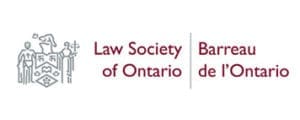The process to hiring a criminal lawyer in Toronto can seem daunting, with many unsure of the role of a defence lawyer does. Who you decide to represent you can have a dramatic effect on your case. Here we explain what you need to look for in a criminal lawyer.
The Role of a Criminal Defence Lawyer
Criminal defence lawyers dedicate their law practice to defending individuals charged with criminal offences, as outlined by the Criminal Code of Canada.
In Ontario, the Law Society of Ontario licenses every lawyer and paralegals in Ontario. However, criminal defence lawyers specifically focus on courtroom advocacy and the comprehensive tasks involved in defending against criminal charges.
To practice in Ontario, a criminal lawyer must hold either a J.D. or L.L.B. law degree and be licensed by the Law Society of Ontario.

How a Defence Lawyer Helps You
Representing Yourself in Criminal Court and the Value of a Criminal Lawyer
Opting to defend yourself in criminal court can be a risky move with significant consequences. Here’s why it’s advisable to have a criminal lawyer by your side instead of navigating the legal system on your own:
Complexity of the Legal System:
The criminal justice system is intricate, with numerous rules, procedures, and legal principles that can be overwhelming for someone without a legal background. Criminal lawyers are trained to understand these complexities and can navigate the system effectively.
Interaction with the Crown Attorney:
A critical aspect of pre-trial preparation involves discussions with the Crown attorney. Criminal lawyers routinely engage in these discussions to negotiate charges, discuss the strength of the prosecution’s case, and explore the possibility of a resolution without going to trial. This dialogue can lead to charge reductions or even dismissals in some cases.
Pre-Trial Discussions and Disclosure Review:
Before the trial, your lawyer will engage in pre-trial discussions to clarify issues and negotiate terms that could be favorable to you. They also review disclosure documents, which include the evidence the prosecution intends to present against you. Analyzing these documents is vital for developing a robust defence strategy and identifying weaknesses in the prosecution’s
Lack of Objectivity:
Facing criminal charges can be emotionally taxing. A person representing themselves may struggle to remain objective and make decisions based on emotions rather than legal strategy. Criminal lawyers provide an objective perspective, ensuring decisions are made in the best interest of the case.
Potential for Severe Consequences:
Mistakes in self-representation can lead to harsh penalties, including jail time, fines, and a criminal record. Criminal lawyers have the expertise to minimize these consequences, often negotiating plea deals or arguing for reduced sentences.
Knowledge of Court Procedures and Protocols:
Each court has its specific procedures and etiquette. Criminal lawyers are familiar with these and can ensure that filings are timely, procedures are followed, and court etiquette is observed, which can positively influence the court’s perception of your case.
Access to Resources and Expert Witnesses:
Criminal lawyers have access to resources and networks that can be crucial in building a strong defence, including private investigators and expert witnesses. These resources can be pivotal in challenging the prosecution’s evidence or providing alternative narratives.
Skilled Negotiation:
Negotiating plea bargains or other arrangements with prosecutors requires skill and legal knowledge. Criminal lawyers have experience in negotiation and can often secure more favorable terms than an individual could achieve on their own.
Understanding of Evidence:
A deep understanding of the rules of evidence is critical in criminal defense. Lawyers know how to challenge the admissibility of evidence, how to cross-examine witnesses to undermine their credibility, and how to present evidence in the most favorable light.
Protection of Your Rights:
Perhaps most importantly, a criminal lawyer ensures that your rights are protected throughout the legal process. They can spot constitutional violations, such as illegal searches or improper interrogation practices, and move to have improperly obtained evidence excluded.
Conclusion
While self-representation in criminal court might seem like a cost-saving measure, the potential consequences far outweigh any immediate savings. The expertise, advocacy, and strategic planning provided by a criminal lawyer can be invaluable, not just in navigating the present charges but also in preserving your future opportunities and freedom.




Comments are closed.